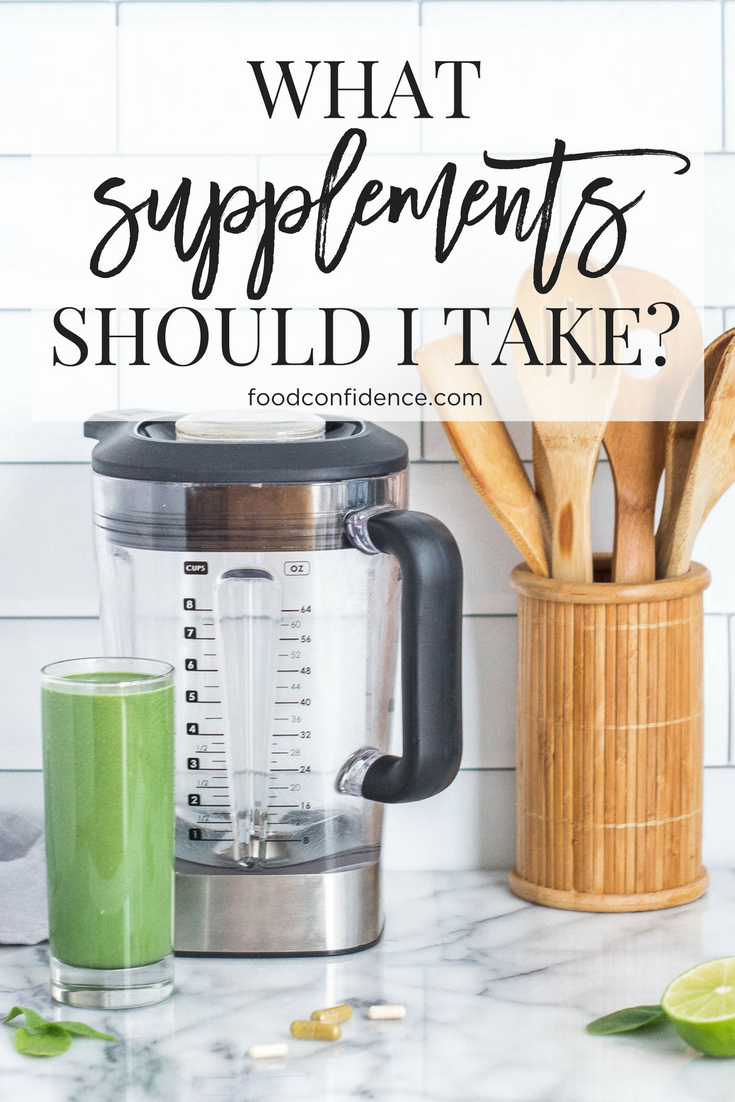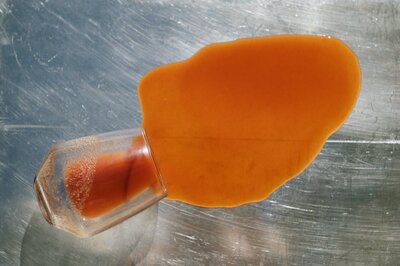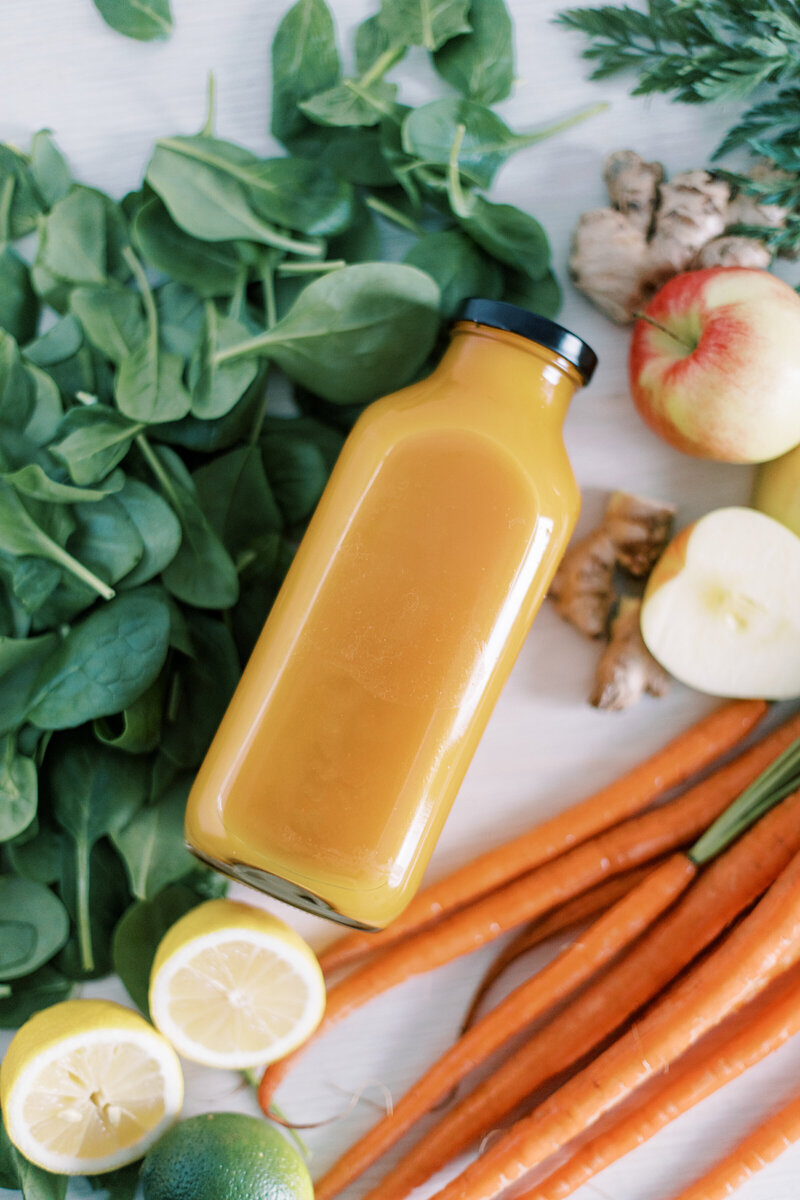

In case you didn’t know, March is National Nutrition Month, and today happens to be Registered Dietitian Day.
If you know me, you know my work is my passion! I love helping my clients better understand how what they eat affects not only their health, but their mindset, self-esteem, confidence, mood, sleep, and overall wellness. That’s why I’m a big fan of this year’s National Nutrition Month theme: Go Further with Food. The idea is to make the most of what you eat by choosing foods that go the distance for your health.
Eating nutrient dense, high quality food is the best way to give your body all the nutrients it needs to thrive. As an Integrative Dietitian, I’m a big fan of the “food first” approach — which means focus first on getting as many nutrients as possible from whole foods like fruits, vegetables, whole grains, beans, legumes, dairy, fish & seafood, and lean meats.
As someone who loves her veggies and eats a predominantly plant-based diet, it’s easy for me to advocate for that. But not everyone eats the way I eat. In fact, most people don’t. According to a recent study, a very small proportion of Americans engage in any risk reduction lifestyle behaviors. And by small, I mean just 3%. That’s right, only 3% of the study participants (over 3,600 of them) met the majority of the risk reduction goals for type 2 Diabetes.
For many, eating healthy and exercising consistently is much easier said than done.
When it comes to helping my client’s optimize their diet, it can be difficult for them to get in all the nutrients they need while working around food preferences, intolerances & food allergies, and “special” diets. It doesn’t help that the current trend is to eliminate entire food groups like carbs (including whole grains and beans). Added to that are the many plant-based eaters that don’t do dairy or animal products at all. So what does that mean for nutrient intake? It means we are falling short of basic nutrients needed for optimal health.
While a food first approach is always my first priority, sometimes smart supplementation is just that. SMART. While supplements are not a replacement for food, they’re a great way to supplement your healthy eating habits with nutrients that are missing in your diet — for whatever the reason. I have clients who score well in the recommended servings of vegetables every day, but if they’re lactose intolerant, not a fan of fish (or allergic), following a vegan diet or are just picky eaters, supplements can help fill in the gaps.
Here are the top 5 supplements I commonly recommend:
Probiotics
Americans get about 75% of their probiotics through yogurt. If you’re vegan, lactose intolerant, or follow a paleo-style diet, then you may not be getting optimal amounts of probiotics (or calcium and vitamin D). So unless you’re a huge fan of fermented foods like sauerkraut, kimchi and miso, you’re probably not getting a daily dose of good bacteria from your diet.
What to look for in a probiotic? There are many types of probiotic preparations to choose from so it’s important to know what strains are in the product, the amount of each strain per dose, and the evidence for using a particular strain, as it relates to your needs. A good “all purpose” probiotic is one that contains Lactobacillus Acidophilus, which is a naturally occurring beneficial bacteria that promotes a healthy intestinal tract.
Vitamin D
Vitamin D helps the body absorb calcium from food and supplements. Almost every one of our cells have a receptor for Vitamin D, so it’s super important to the body in many other ways, too.
Dairy foods are also the main dietary source of calcium and vitamin D in the American diet. The BEST way to get your daily dose of Vitamin D is to get out in the sun for about 20 minutes each day (without sunscreen). Since many of my clients often don’t see the light of day during a work week, a supplement is often necessary. I recommend getting your Vitamin D levels checked each year so you to get a baseline. Two forms of vitamin D can be measured in the blood, 25-hydroxyvitamin D and 1,25-dihydroxyvitamin D. Measurement of the total 25(OH)D level is the best test to assess body stores of vitamin D.
Omega-3 Fatty Acids
Omega-3 is the buzzword on everyone’s tongue lately, and for good reason. Omega-3 has been shown to help lower inflammation, promote cardiovascular health, support brain health, promote satiety, and more. While you can find omega-3 in plant-based foods like flax seeds and chia seeds, it’s important to note that there are three types of Omega-3 fatty acids: EPA, DHA, and ALA.
ALA is found in most plant based sources of omega 3 (like flax and chia seed) and is used by your body as a building block to create EPA and DHA. The problem is that the conversion process from ALA to EPA/DHA is not super-efficient, so it’s better to get EPA and DHA directly to meet your Omega-3 needs. Marine fish is by far the best source of EPA and DHA, but if you aren’t consistently eating 8 ounces per week of fatty fish that provides about 250 mg per day EPA and DHA, you are likely not getting the protective effects.
Vitamin B12
Vitamin B12 is a big issue for vegans and those who don’t eat animal products. B12 is needed for DNA production and nerve function, and deficiencies can lead to pretty severe anemia and nerve issues. All animal foods contain vitamin B12, but no plants produce it naturally, so it’s essential for vegans to eat lots of vitamin B12 supplemented food (it’s often added to non-dairy milks and meat substitutes) or take a vitamin B12 supplement. This is one supplement you can probably leave out if you’re an omnivore or ovo-lacto vegetarian, since our B12 needs are fairly small and can be met with animal-based foods. But if you’re not getting any B12 from animal-based foods, a supplement can really help your vegan diet go further for your health.
Magnesium
Every organ in the body needs magnesium to function, it helps keep your bones strong, your immune system healthy, and your blood pressure in check. It’s a pretty big deal, but LOTS of people are deficient in magnesium, and it’s considered one of the leading causes of chronic disease around the globe!
Magnesium is found in foods like pumpkin seeds, legumes, leafy greens and avocado, but as soil quality declines with mass-production farming, it’s tough to say how much magnesium is actually in the fruits and veggies we eat. Refined grains are also a problem, as much of the magnesium has been removed. I’ve written about magnesium before, and many of my clients take a magnesium supplement. I usually recommend magnesium citrate for constipation, magnesium glycinate as an everyday supplement to boost magnesium levels and help with sleep and magnesium malate for pain relief.





